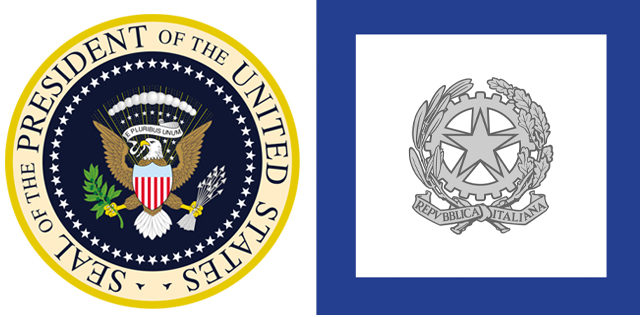 As the American presidential election approaches, some may wonder how the posts differ in America vs. Italy. How does the election work in Italy? What powers does the president have? Is the position as high-profile as it is in America?
As the American presidential election approaches, some may wonder how the posts differ in America vs. Italy. How does the election work in Italy? What powers does the president have? Is the position as high-profile as it is in America?
While the U.S and Italian presidents share a title, their roles and powers are worlds apart, reflecting the distinct ways Italy and the United States have structured their political systems
In Italy, the president of the republic is largely a ceremonial figure. Serving a seven-year term, the president is selected by an electoral college of Parliament members and regional representatives. This role focuses on representing national unity and ensuring the smooth operation of the government.
Although mostly symbolic, the president does have important responsibilities. For example, the president delivers a New Year’s Eve address to the nation, a moment intended to unify and inspire. But there are times when the president steps into the political fray. Just to mention a recent history, in 2018, President Sergio Mattarella refused to approve a finance minister who was openly Eurosceptic, highlighting his role in safeguarding the country’s constitutional order and its place in the European Union.
The U.S. president is a central figure in the nation’s governance, wielding substantial power. Elected every four years, the U.S. president acts as both the head of state and head of government, with authority over the military, federal law enforcement, foreign policy and legislative vetoes. Executive orders are one key tool at the U.S. president’s disposal. A recent example is president Joe Biden’s 2021 executive order that reversed the previous administration’s travel ban on several predominantly Muslim countries, underscoring the President’s ability to swiftly change national policy. Another notable action was Biden’s order to rejoin the Paris Climate Agreement, illustrating the president’s influence on global issues.
The Italian president acts as a stabilizing force within a parliamentary system, often stepping in to prevent or resolve crises, while the U.S. president is a powerful leader with significant influence over both domestic and international affairs. While the title might be shared, the roles and responsibilities differ greatly.
Send your questions regarding Italian law to cbortolani@aliantlaw.com and I’ll be glad to answer them.
The content provided in this Q&A column is intended solely for general informational purposes and does not constitute legal advice. The information presented here is not tailored to any specific situation or transaction and should not be relied upon as a substitute for professional legal counsel. Legal issues can vary widely based on individual circumstances and jurisdictional nuances. Therefore, it is crucial to consult with a qualified legal professional regarding your specific case or concerns. Please be aware that no attorney-client relationship is established by accessing or interacting with the information provided in this column. The column’s author and publisher disclaim any liability for actions taken based on the information contained herein.
 Fra Noi Embrace Your Inner Italian
Fra Noi Embrace Your Inner Italian





